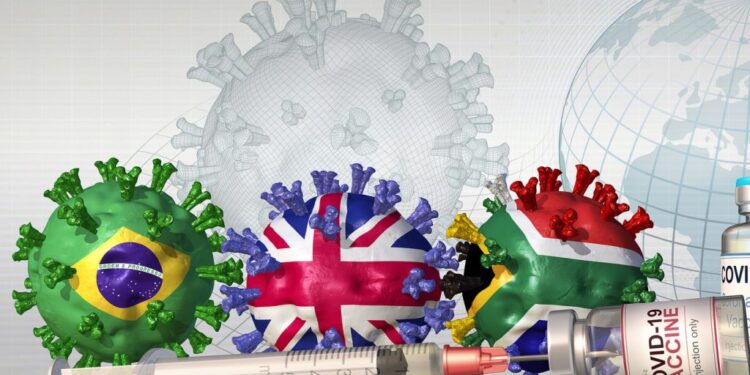More than 4000 variants of SARS-COV-2 have been identified around the world. It is, after all, a natural process since the virus acquires mutations over time, to ensure its survival.
But four variants are considered by the World Health Organization (WHO) as “concern”. There is the variant detected in England, South Africa and then in Brazil (two variants were observed there, including the concerning P1) and finally that which appeared in India.
The WHO has decided to rename these variants of the coronavirus with Greek letters in order to have names easier to remember while avoiding discriminatory appellations. The idea of the WHO is to have easy names to pronounce and remember without stigma.
Scientific names will continue to exist because they provide useful data to experts, but WHO will no longer use them in its daily communication.
The British variant renamed Alpha
Appeared for the first time in September 2020 in the United Kingdom, the British variant called VOC 202012/01 or B.1.1.7, was reported by the authorities of the United Kingdom on December 14, 2020 and has since caused a sharp increase in cases.
The English variant is not only more contagious but also 64% louder than the classic coronavirus. He continues to propagate significantly around the world.
The South African variant renamed Beta
If it is not deadlier than the SARS-COV-2, it is 1.5 times more contagious according to South African experts. Called 501Y.V2, this discovery discovery last December “is 50% more transmissible”.
The Brazilian variant renamed Gamma
Two Brazilian variants are from Amazon. The first variant, the B1.1.248, was detected in early January in Japan on a family from Brazil and more precisely from Amazon.
At the end of January, a second variant, called p.1 appeared. He is “one of the 18 variants of the coronavirus that have circulated in the state of Amazonas since the start of the pandemic”.
Investigations recently carried out by the WHO, however, showed that the variant p.1 had “increased transmissibility compared to the variants circulating before”. It would also be “1.1 to 1.8 times more likely to lead to death”, while stressing that these are “preliminary results and that they are not generalizable to other contexts”.
The Indian variant: Delta and Kappa
The variant, called by the name of his line, b.1.617, was baptized Delta and Kappa. This variant was detected in western India last October. It is described as “double mutant” because it is notably carrying two worrying mutations in the advanced protein (“Spike”) of the Sars-Cov-2 virus.
Its characteristics make it fear that it is more “resistant” in the face of current vaccines against the COVVI-19, developed to recognize the SPIKE protein of the previous strains of the coronavirus.
It is also a more contagious variant, which facilitates an increase in the number of contaminations, at a time when many countries are trying to curb a third or a fourth wave of the epidemic.








